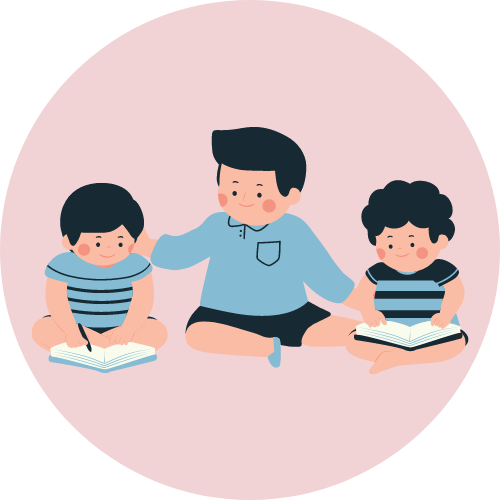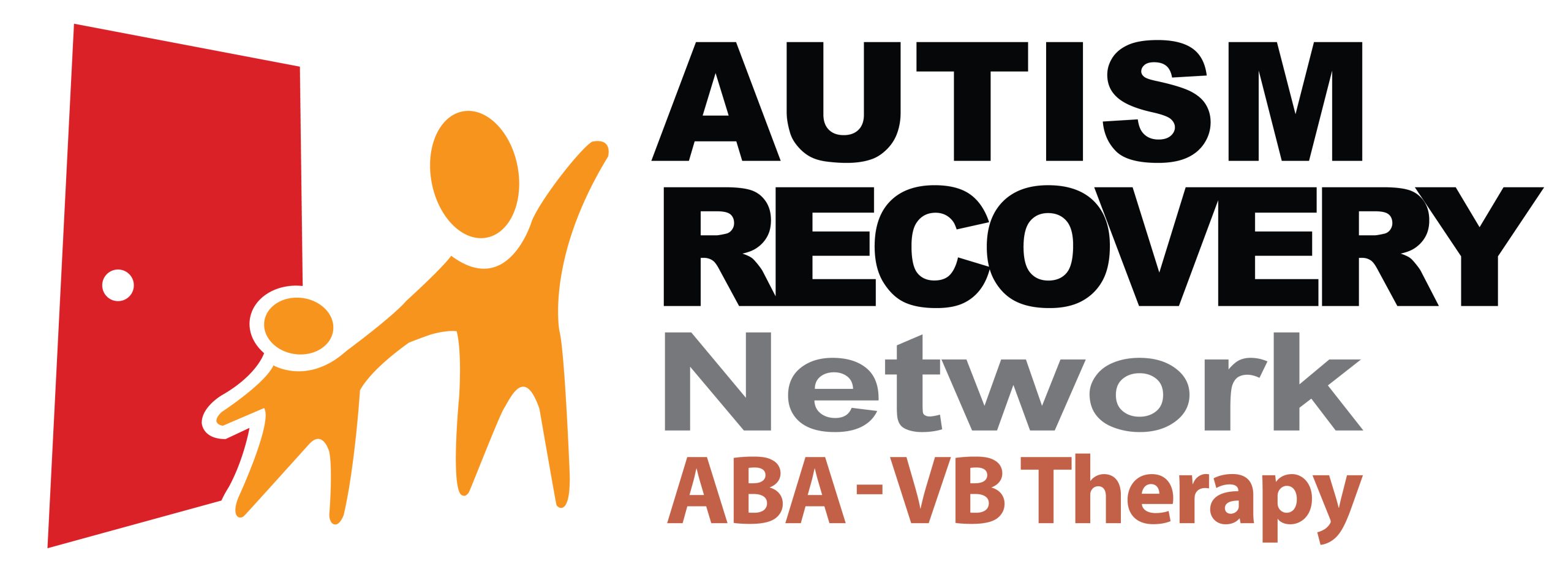Parents’ FAQ
We’ve got all the answers that parents commonly ask here.

Frequently Asked Questions about ARN's services:
ABA is a well-established, evidence-based teaching method that uses rewards to motivate children to learn appropriate behaviors. Our therapists break down skills into simple, easy to learn components. As the children learn these components, our therapists gradually help them to combine different components together to perform complex skills.
ABA-VB avoids the tendency of traditional ABA to train children in a robotic manner to perform tasks without understanding. Our therapists are required to ensure that the children truly understand what they have learned. For example, children must not only learn about the item being taught, they must also demonstrate how to use it and generalise its use for different situations in real life.
Find out more about ABA-VB here.
OT/ST/SI may overlap with ABA-VB in some aspects, but ABA-VB therapy is more comprehensive and flexible. ABA-VB covers appropriate play, academic learning, basic life skills, emotional regulation and dealing with sensory issues all in one.
In addition, ABA is the only therapy recommended by the Surgeon-General to treat autism. Research conducted on it since the 1960s continues to build on the most successful intervention for improving autistic children’s outcomes, especially in developing their cognitive and language abilities.
Our programs are designed by our program supervisors based on the ABLLS-R written by Dr. James Partington.
Our sessions are more relaxed, flexible and fun for the child to learn compared to traditional ABA.
Our typical session lasts 3 hours. It consists of teaching the child essential cognitive, speech and language, and communication skills. Our therapists would spend at least 2 hours on structured teaching to help them develop, strengthen or enhance these skills. Short breaks are given to the child at the end of each hour as a reward for doing well during the structured teaching.
We also devote 45 minutes to an hour to teach social interaction skills through facilitated free play, interactive games, cooperative play, and group activities like having snacks together.
Dr. James Partington, a world-renowned Doctoral level Board Certified Behavior Analyst (BCBA- D), who has over 40 years of experience working with children with autism, not only trains our therapists, but also supervises our programmes. He has also taught undergraduate, graduate, and doctoral level courses in psychology and behavioral disciplines at educational facilities across North America and Canada.
Our therapists mainly come from a psychology and pedagogy background. They have received extensive training from Dr. Partington and our program supervisors. We invest very heavily in staff development and training to make sure that our therapists always provide the best quality service in Asia.
• Firstly, we are the most awarded centre in Asia.
• We are also the only certified ABA-VB provider, with ABA-VB being a more advanced type of ABA.
• In addition, we invest the most amount of money, time and effort in training our staff to become and remain the best in the industry.
• More importantly, we possess in-depth understanding and – collectively, more experience and expertise in the treatment of autism than any other centre in Asia.
• Last but not least, our passion and commitment upholds and ensures the utmost quality and effectiveness of our programmes.
• Some centres adopt a “we care” attitude towards children.
• However, caring alone is not going to help these children improve from their condition
• It takes a tremendous amount of training, experience and expertise to make a significant and meaningful difference in the lives of these children.
General FAQS:
The exact cause behind children having autism still remains unknown. Research suggests that autism develops from a combination of different factors such as genetics, nongenetic, or environmental influences.
So far, no medical cure for autism has come out. The mainstay of intervention for ASD in Hong Kong and many other countries have been educational and behavioral training to reduce dysfunctional symptoms of the disorder. The goal of these programs is to enable children with autism in Hong Kong to improve communication and social skills with continual guidance and parental support.
While there is no available medical cure for ASD in Hong Kong, some medications are seen to keep certain symptoms of the disorder in check. A doctor may prescribe medications to control self-harming behavior, aggression, anxiety, compulsiveness, mood swings, inattention, hyperactivity, sleep problems, and stereotypes. Reducing these symptoms and behaviors can greatly help in getting the maximum results from professional interventions for autism spectrum disorder in Hong Kong.
Treatment of autism in Hong Kong takes into account the following 3 factors:
- Crafting tailor-made training strategies to cater to the individual learning needs of children with autism, such as language, communication, emotional regulation, social and play skills.
- Early interventions by a behavior specialist using different treatment modalities to achieve effective learning outcomes at each stage of autism recovery.
- Encouraging parental participation to improve the implementation of ABA principles and monitoring of learned behavior of children with autism on a daily basis.
We heavy emphasis on verbal language, essentially teaches the most basic type of verbal communication and language to individuals with autism. At first, your child learns from the therapist the simple act of requesting – things such as cookies, color pencils, fruits, and so on. Every time the word is uttered, the object is produced. The therapist then repeats the process till the meaning of the word is reinforced in the mind of your child. Over time, the therapist helps the child form proper communication by using a technique known as “errorless learning.”
At Autism Recovery Network, our therapy is provided by our BCBA, RBTs, and therapists who have years of experience in teaching. Our therapists are adept at applying the ABA principles in the context of autism spectrum disorder.
At Autism Recovery Network, we use two types of assessment and curriculum; WebABLLS/ABLLS-R for younger individuals with autism, and AFLSonline for the older ones. With these, it helps to identify deficiencies in different areas of learning such as language, academic, self help, motor, social and community skills and more. Results are then gathered to form a specific goal for the individuals. Verbal behavior or VB is one the main approaches in ABA that we use in teaching.
Our therapy at Autism Recovery Network can help individuals with intellectual disabilities and in the Autism Spectrum Disorder in Hong Kong. Although it can be effective for autistic individuals of a wide range of age, the strategies and most effective for children with autism before the age of 3 to be considered early intervention. Autism Recovery Network strongly recommends this. At a young age, it is easier to shape behaviors, before learned behaviors become established
Depending on the needs of the child, most ABA-VB therapy for autism treatment in Hong Kong involve at least an hour to three hours of sessions per week. However, some children with autism would require many more hours per week because of the relative difference between their dysfunction. Even parents are brought on-board to equip them with the “know-how” of verbal-behavior strategies. It is to be noted that the ABA-VB therapy is an ongoing process and its requirement for children will most likely change with their dynamic needs as they grow.
The perspective on the development of children with ASD in Hong Kong will depend greatly on the severity of the disorder. The language abilities and cognitive abilities of the children are also important considerations to reach a conclusion. However, there will be some unfavorable factors, such as seizures, intellectual disability, and dysfunctional speech until 5-6 years of age. Adolescents, as well as adults with autism often face challenges in academics, social interactions, vocational pursuits, and everyday functioning. Early intervention and proper support from family members and the community can help autistic individuals to lead rewarding and positive lives.
Recovery of children and adults with autism in Hong Kong requires consistent effort and professional intervention. Here’s what you can do to support their goals:
- Understand the goals and skills individuals with autism spectrum disorder in Hong Kong wish to achieve, build and work with them.
- Encourage independence by prompting them to finish their tasks on their own by using suitable visual, verbal, and physical prompts, and gradually fading it out.
- Break down big tasks into smaller, manageable steps by using picture prompts and other communication support to demonstrate each step.
- Consider spending time working out solutions to their everyday problems so that they feel confident. Make them practise the same activity many times until they master it.
- If you observe any self-harming behaviors, you should get in touch with the person’s ASD Hong Kong therapist immediately. Specialists can look at these behaviors in detail to understand the underlying causes and define goals to keep them safe.
- Reward them for their positive behaviors and ignore or redirect any observed negative behaviors.

